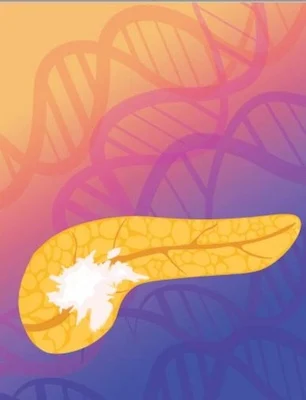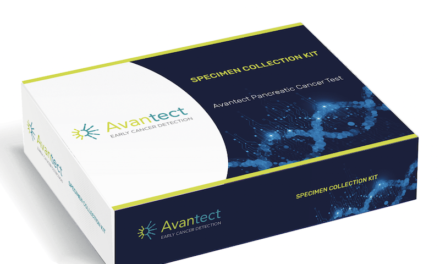Summary:
Johns Hopkins researchers developed an AI-driven blood test, ARTEMIS-DELFI, that detects pancreatic cancer treatment response faster and more accurately than traditional imaging methods.
Takeaways:
- ARTEMIS-DELFI uses AI to analyze cell-free DNA fragments in blood, offering a simpler, tumor-independent method to monitor therapy response.
- It outperformed traditional imaging and another tumor-based DNA test (WGMAF), identifying effective treatments as early as four weeks into therapy.
- The test’s speed and broad applicability make it especially valuable for late-stage pancreatic cancer patients needing rapid treatment adjustments.
An artificial intelligence technique for detecting DNA fragments shed by tumors and circulating in a patient’s blood, developed by Johns Hopkins Kimmel Cancer Center investigators, could help clinicians more quickly identify and determine if pancreatic cancer therapies are working.
ARTEMIS-DELFI Measures Therapeutic Response
After testing the method, called ARTEMIS-DELFI, in blood samples from patients participating in two large clinical trials of pancreatic cancer treatments, researchers found that it could be used to identify therapeutic responses. ARTEMIS-DELFI and another method developed by investigators, called WGMAF, to study mutations were found to be better predictors of outcome than imaging or other existing clinical and molecular markers two months after treatment initiation. However, ARTEMIS-DELFI was determined to be the superior test as it was simpler and potentially more broadly applicable.
A description of the work was published May 21 in Science Advances. It was partly supported by grants from the National Institutes of Health.
Time is of the essence when treating patients with pancreatic cancer, explains senior study author Victor E. Velculescu, MD, PhD, co-director of the cancer genetics and epigenetics program at the cancer center. Many patients with pancreatic cancer receive a diagnosis at a late stage, when cancer may progress rapidly.
“Providing patients with more potential treatment options is especially vital as a growing number of experimental therapies for pancreatic cancer have become available,” Velculescu says. “We want to know as quickly as we can if the therapy is helping the patient or not. If it is not working, we want to be able to switch to another therapy.”
Current Pancreatic Cancer Monitoring Focuses on Medical Imaging Techniques
Currently, clinicians use imaging tools to monitor cancer treatment response and tumor progression. However, these tools produce results that may not be timely and are less accurate for patients receiving immunotherapies, which can make the results more complicated to interpret. In the study, Velculescu and his colleagues tested two alternate approaches to monitoring treatment response in patients participating in the phase 2 CheckPAC trial of immunotherapy for pancreatic cancer.
One approach, called WGMAF (tumor-informed plasma whole-genome sequencing), analyzed DNA from tumor biopsies as well as cell-free DNA in blood samples to detect a treatment response. The other, called ARTEMIS-DELFI (tumor-independent genome-wide cfDNA fragmentation profiles and repeat landscapes), used machine learning, a form of artificial intelligence, to scan millions of cell-free DNA fragments only in the patient’s blood samples. Both approaches were able to detect which patients were benefiting from the therapies. However, not all patients had tumor samples, and many patients’ tumor samples had only a small fraction of cancer cells compared to the overall tissue, which also contained normal pancreatic and other cells, thereby confounding the WGMAF test.
AI Blood Test Is Simpler, More Effective
The ARTEMIS-DELFI approach worked with more patients and was simpler logistically, Velculescu says. The team then validated that ARTEMIS-DELFI was an effective treatment response monitoring tool in a second clinical trial called the PACTO trial. The study confirmed that ARTEMIS-DELFI could identify which patients were responding as soon as four weeks after therapy started.
“The ‘fast-fail’ ARTEMIS-DELFI approach may be particularly useful in pancreatic cancer where changing therapies quickly could be helpful in patients who do not respond to the initial therapy,” says lead study author Carolyn Hruban, who was a graduate student at Johns Hopkins during the study and is now a postdoctoral researcher at the Dana-Farber Cancer Institute. “It’s simpler, likely less expensive, and more broadly applicable than using tumor samples.”
The next step for the team will be prospective studies that test whether the information provided by ARTEMIS-DELFI helps clinicians more efficiently find an effective therapy and improve patient outcomes. A similar approach could also be used to monitor other cancers. Earlier this year, members of the team published a study in Nature Communications showing that a variation of the cell-free fragmentation monitoring approach called DELFI-TF was helpful in assessing colon cancer therapy response.
“Our cell-free DNA fragmentation analyses provide a real-time assessment of a patient’s therapy response that can be used to personalize care and improve patient outcomes,” Velculescu says.
Featured Image: Pancreatic tumor DNA in circulation can be used by novel AI blood test to determine response to cancer therapy. Image: Carolyn Hruban





